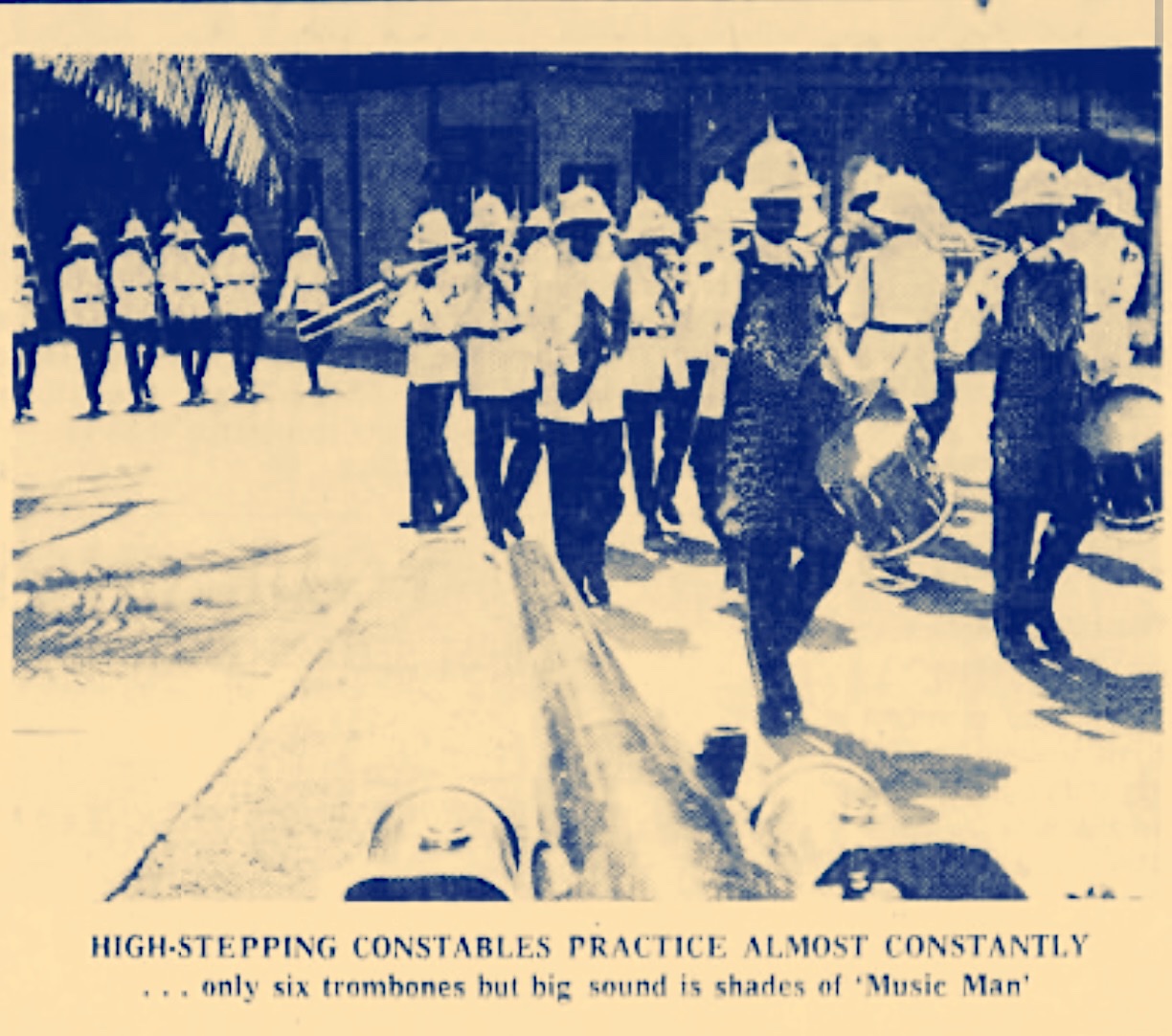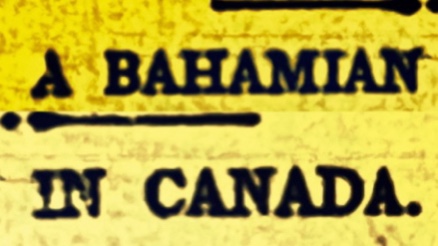
In 1807, the Parliament of the United Kingdom passed the The Slave Trade Act, on 25 March 1807. The act effectively abolished the slave trade in the British Empire. This act however did not abolish the practice of slavery itself. Slavery in British colonies, especially in the West Indies, would continue for another twenty-seven years, until 1834. What the 1807 Act did accomplish was to begin the end of the Atlantic transshipment of Africans to British colonies for the purposes of slavery. Once the Act came into force, Britain pushed for other European slave trading states to follow suit. This would not happen for a numbers years.
The Act of 1807 suddenly changed the role of Britain from guilty participant to exonerated international rule enforcer. As the Britain’s considerable Royal Navy had effectively controlled the world’s seas, the role of enforcement was a natural progression. The Act created fines for captains who continued with the trade. The Royal Navy had declared ships transporting slaves were now categorised as pirates and patrolled the West African coast to ensure compliance. Between 1808 and 1860, some 1,600 slaves ships were seized and approximately 150,000 Africans were aboard.
Of these 150,000 Africans, depending on where the slave ships were seized, the Royal Navy were obliged to take the ship the nearest friendly port. Once the Africans were decamped, their fate depended on the place and the time and the need for labour. Prior to 1834, many Africans were enslaved. However, many were given liberated status. They were free.
The Hebe
After the 1807 Slave Trade Act was brought into force, Britain and Spain entered into an agreement in 1818 to stop the importation of slaves into Spanish territories. For Spanish slave ships caught by the Royal Navy were primarily bound for the plantations of Cuba, the Mixed Commission Court was established in Havana to hear cases against captains and crew members. A British-Portuguese court was set up in Sierra Leone for any Portuguese vessels captured by the Royal Navy.
And so it was against the backdrop that these events that we meet a boy named Pompey Dala. On the 13th of July 1832, the HMS Nimble, a Royal Navy five-gun schooner of war was employed on anti-slave trade patrol. The Nimble had captured a Portuguese slave ship named The Hebe. On board were 401 Angolans bound for the slave plantations. When the Hebe was boarded, the Africans were in such a poor state, diseased, wounded and starved that it was quickly apparent that they would not survive the journey back to Africa. The decision was taken to leave them in the Bahama Islands. At first, they were taken to nearest deserted cay, Highburn Cay. They were later transported to Nassau. would the illegal slaver Spanish were had The Hebe was a Portuguese slaver was seized and taken to Nassau. Some of the men were later recruited for work in the West India Regiment. The West India Regiment were army infantry unites recruited from and stationed in the British Caribbean colonies between 1795 and 1927. The rest of the 401 Angolans, the men, women and children, the ones who survived, were apprenticed to white Bahamians.
Here we have the transcript of the deed of apprenticeship for 10 year old African boy, Pompey Dala. Pompey was number 234 of the cargo of 401 Angolans on the Hebe. The boy was apprenticed, be deed, to the Collector of the Customs, James Walker in New Providence. Pompey was apprenticed for a period of seven years. He was 4 feet 2 inches in 1835. The deed of apprenticeship notes that Pompey was branded on the chest, with a mark, by slavers after he was sold into slavery in Africa.
Indenture of apprenticeship of a 10 year old ‘liberated African’ boy named Pompey Dala. Bahamas, 1835.
BAHAMA ISLANDS,
NEW PROVIDENCE.
THIS INDENTURE,
AND WHERE-
AS His said late Majesty King George the Fourth in and by His Royal Order in Council made and given at the Court of Windsor on the nineteenth day of July which was in the Year of Our Lord one thousand eight hundred and twenty five, after reciting as hereinbefore is recited, did by and with the advice of His Privy Council, Order that all slaves or Persons who had heretofore been, or who should or might at any time thereafter be so condemned, as aforesaid as Prize of War or as forfeited to the sole use of His said late Majesty, His Heirs or Successors for the purpose aforesaid, under or by virtue of the said recited Act of Parliament, or under or by virtue of any other Act of Parliament theretofore in force for the Abolition of the Slave Trade, whom it had not been found practicable or convenient to bind as Apprentices to any Person or Persons resident in such Colonies or Plantations, or to enter or enlist into His Majesty’s Land or Sea Service, and who were then living, or who should, at any future time, be placed under the protection of the Collector or other chief officer of Customs in any of His Majesty’s said Colonies or Plantations, should, by Indentures to be for that purpose from time to time executed by the Governor, Lieutenant Governor or other person for the time being administering the Government of any such Colony or Plantation, be bound as Apprentices for any term not exceeding seven years to such Collector or other Chief Officer of Customs, upon the terms and conditions and subject to the regulations therein and hereinafter mentioned: NOW THEREFORE this indenture Witnesseth that the said Blayney Towney Balfour, Lieutenant Governor as aforesaid, by virtue of the Powers and authorities to him given and granted in and by His said late Majesty’s Royal Order in Council herein before recited, made and given in pursuance of the aforesaid statute here-inbefore also recited, hath put out and bound and doth hereby put out and bind a certain male African named Pompey Dala, about the Age of 10 years, 4 feet 2 inches in height, marked Ť on left breast, or by whatsoever other name, age, height or marks the said Pompey Dala, shall hereafter be known or distinguished, and on the twenty seventh day of October last past, which was in the year of our Lord one thousand eight hundred and thirty two, to wit, at His Majesty’s Colony or settlement of Sierra Leone, on the west coast of Africa, by a certain sentence of condemnation in the British and Portuguese Mixed Commission Court, then and there established and sitting for the trial and adjudication of certain Slave captures, pronounced and declared to be emancipated, in pursuance of, and for the purposes in and by the subsisting treaties between His Majesty and the King of Portugal, in this behalf, provided and set forth:- and being number 234 of the cargo of the Portuguese ship or vessel called the “Hebe,” whereof a certain Domingo Jose d’ Almeida was, or was alleged to be the master, Apprentice to the said James Walker Collector of the Customs as aforesaid, from the date hereof for and during the term of Seven Years, to serve the said James Walker, Collector a s aforesaid, in some art, trade, mystery or occupation in the Island of New Providence, or some other island within this government ; provided always and it is hereby declared and agreed, that the said James Walker, Collector of the Customs as aforesaid, is by this Indenture bound and required to provide to the best of his power, and not further or otherwise, for the employment and instruction of the said Apprentice in such Art, Trade, Mystery or occupation in which it may be found practicable to employ or instruct him. And that this Indenture and the said Apprentice may be assigned by the said James Walker, Collector of the Customs aforesaid, to any other person within the said Island of New Providence or other island within this government as aforesaid whom he may think proper to be entrusted with such Apprentice at any time within the said term of Seven years for the residue of such term.

Reference: The National Archives, Britain, Catalogue reference: CO 23/94/6 folio 25. Crown Copyright.





